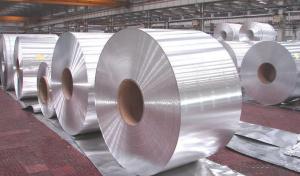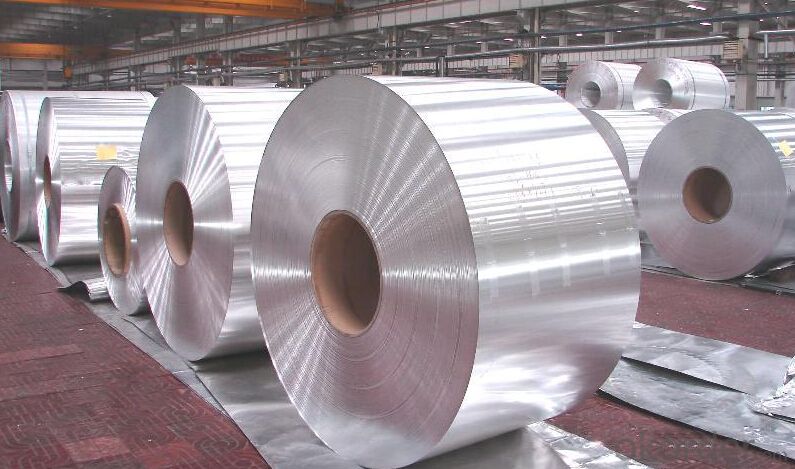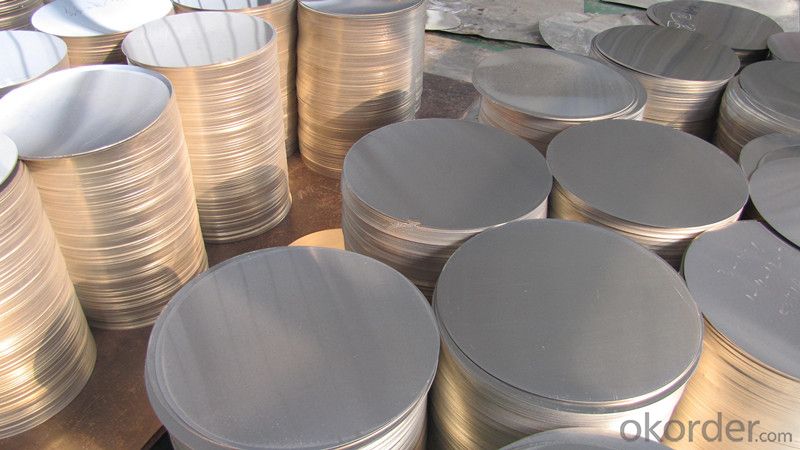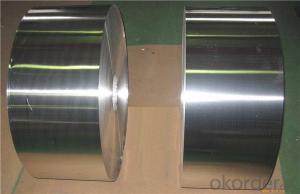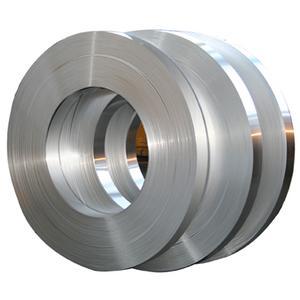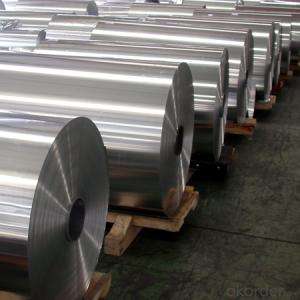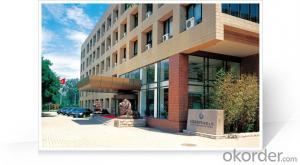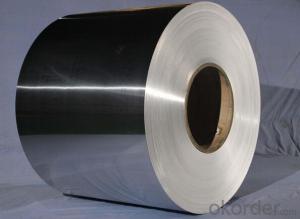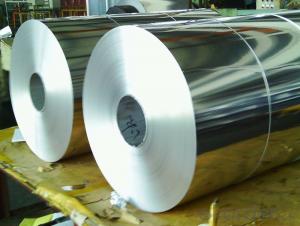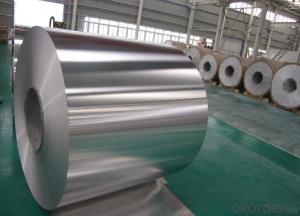1070 H22 Aluminum Rolled Sheet Aluminium Coil - Aluminum Coils Tampa FL
- Loading Port:
- Shanghai
- Payment Terms:
- TT OR LC
- Min Order Qty:
- 5 m.t.
- Supply Capability:
- 500 m.t./month
OKorder Service Pledge
OKorder Financial Service
You Might Also Like
Specification
1070 H32 Aluminum Rolled Sheet Aluminium Coil
aluminum coil specifications:
1) Alloy :1050, 1060,1100, 3003 3004 3105 3A21 5005 5052 etc
2) Temper: O/H12/H14/H1/H18/H32/H34/H36/H38//H111/H112/H116/H321/T6/T651/T3/T351 etc
3) Thickness: 0.1mm to 6mm
4) Width:20mm to 3300mm
5)Coil weight: 100kgs to 6 tons depends on actual requirement
6)Core material: Aluminum or paper
7)Coil Inner diameter: 75mm, 150mm, 200mm, 300mm, 405mm, 505mm or as required
8) Protective film can be added
item | 3003 Aluminum coil | |
Standard | GB/T3190-2008,GB/T3880-2006,ASTM B209,JIS H4000-2006,etc | |
Material | 1060,1050,1100 3003,3103,3004,3005,3105 5052, 5454,5754 | |
Size | Thickness | 0.5mm-3.5mm |
Width | 800-1500mm | |
Weight/Roll | About 1.5MT/3MT | |
Quality control | Mill Test Certificate is supplied with shipment, Third Part Inspection is acceptable. | |
Surface | Bright, polished, hair line, brush, checkered, embossed, etc | |
Trade terms | Price term | ,FOB, CNF, CIF, etc |
Payment Term | TT,L/C | |
MOQ | 2MT | |
20 GP Capacity | About 20-25MT | |
Delivery time | 1.The products will delivery immediately after receiving the payment. 2.According to the order quantity, prompt delivery. | |
Export to | Ireland,Singapore,Indonesia,Ukraine,Spain,Canada,USA,Brazil,Thailand,Korea,Iran,India,Egypt,Kuwait, Oman,Viet Nam, South Africa, Dubai, Russia, etc | |
Package | Stick blue film→plastic film→waterproof paper→1~2 tons on a export standard pallet(corner protection) | |
Application | 1)Further making utensil.2)Solar reflective film3)The appearance of the building4)Interior decorating:ceilings,walls,etc.5)Furniture cabinets6)Elevator decoraction7)Signs,nameplate,bags making.8)Decoration inside and outside the car9)Household appliances:refrigerators,microwave ovens,audio equipment,etc.10)The consumer electronics:mobile phones,digital cameras,MP3,etc. | |
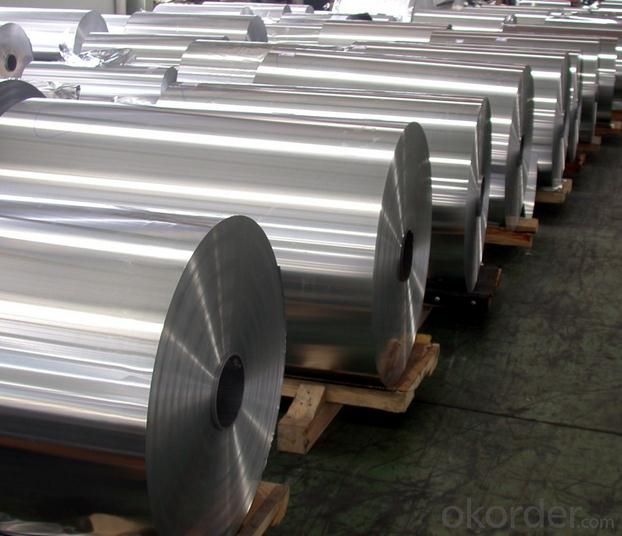
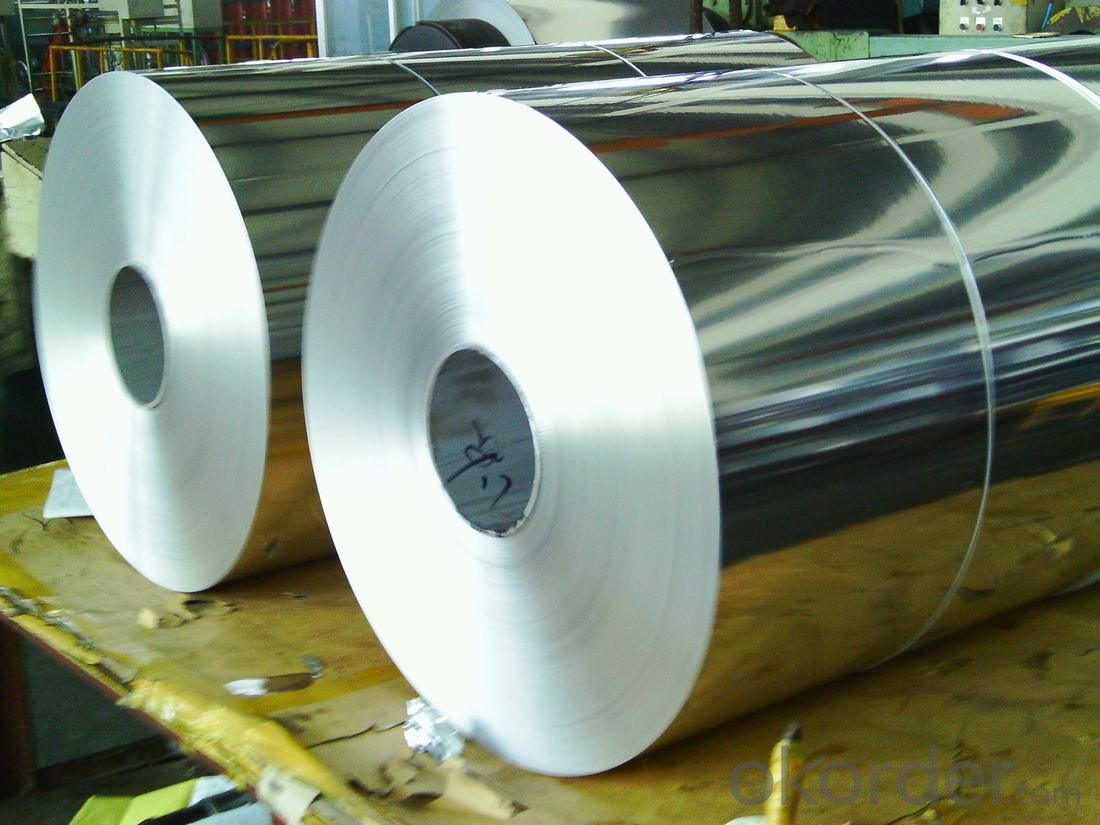
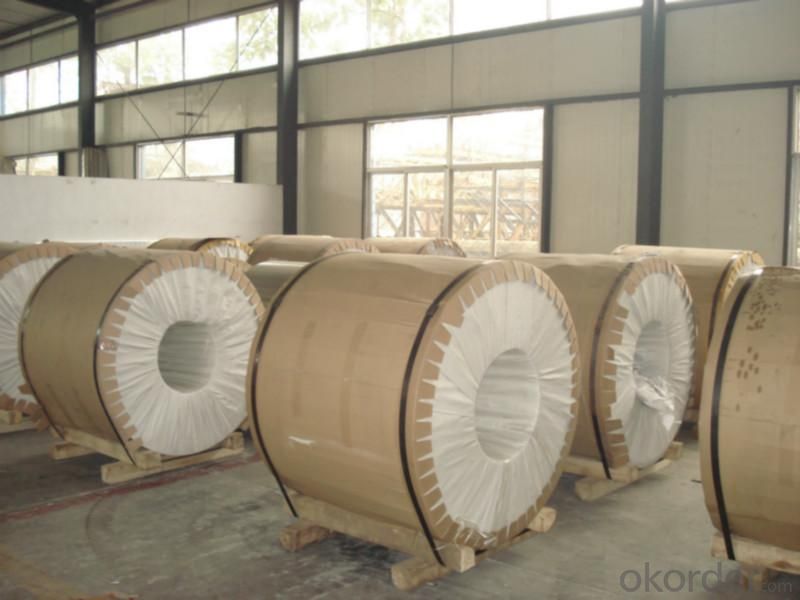
- Q: Why the aluminum-plastic panel?processed by color aluminum coil peel off paint?
- Generally speaking, aluminum-plastic panel will not peel off paint. If it does happen, the quality of the aluminum-plastic panel is very poor.
- Q: What are the advantages of using aluminum coils?
- There are several advantages to using aluminum coils. Firstly, aluminum is a lightweight material, which makes the coils easier to handle and transport. Secondly, aluminum is highly resistant to corrosion, making it a durable choice for various applications, especially in humid or corrosive environments. Additionally, aluminum has excellent thermal conductivity, allowing for efficient heat transfer in applications such as HVAC systems or refrigeration. Lastly, aluminum coils are recyclable, making them a more sustainable option compared to other materials.
- Q: How are aluminum coils cut to size?
- Aluminum coils are typically cut to size using specialized coil slitting machines. These machines have rotating circular blades that make precise cuts along the length of the coil. The coil is fed through the machine, and the blades cut the aluminum into the desired width. The cut pieces are then collected and further processed or used for various applications.
- Q: How heavy and long is the aluminum rolling on average?
- The blank aluminum coil of aluminum manufacturer is about 5-6 tons, while the aluminum coil of dealer or supplier depends on the feeding frame, about 1.5-2 tons or 3 tons.
- Q: Can aluminum coils be used for automotive body panels?
- Certainly, automotive body panels can be made using aluminum coils. In fact, aluminum is gaining popularity in the automotive sector due to its numerous advantages. Its lightweight nature contributes to enhanced fuel efficiency and overall vehicle performance. Furthermore, aluminum exhibits exceptional resistance to corrosion, making it a durable option for automotive body panels. Additionally, aluminum can be easily shaped and molded, enabling intricate designs and improved aerodynamics. All in all, utilizing aluminum coils for automotive body panels presents a viable choice with a multitude of benefits.
- Q: I bought some cheap aluminum foil, but one weighs much less than the other brand for the same thickness and length, why?What is the other made of? Is it still good to use for grounding something?Thank you.
- Aluminum foil is aluminum foil, it has nothing but aluminum in it. One of them is misstating the thickness, or you are mistaken about the weight or width.
- Q: What are the insulation options available for aluminum coils?
- There are various insulation options available for aluminum coils, including fiberglass insulation, foam insulation, and elastomeric insulation. These insulation materials help to improve the energy efficiency of the coils and prevent condensation or heat loss.
- Q: What are the different coil lengths available for aluminum coils?
- Aluminum coils come in a variety of lengths, depending on the specific application and requirements. Typically, these lengths range from a few feet to several hundred feet. The most commonly used coil lengths in industries like HVAC, automotive, and construction are 50 feet, 100 feet, and 250 feet. However, it is worth mentioning that custom coil lengths can also be produced to meet the customer's specific needs. These custom lengths may vary depending on factors such as coil thickness, width, and intended use. Ultimately, the available coil lengths for aluminum coils are adaptable and can be customized to meet the demands of various industries and applications.
- Q: How are aluminum coils used in the production of heat sinks?
- Aluminum coils play a vital role in the production of heat sinks due to their excellent thermal conductivity and malleability. Heat sinks are designed to dissipate the excess heat generated by electronic components such as processors, integrated circuits, and power transistors. By utilizing aluminum coils in the manufacturing process of heat sinks, several key advantages are realized. Firstly, aluminum coils possess high thermal conductivity, which allows for efficient transfer of heat from the electronic component to the heat sink. This is crucial for maintaining the optimal operating temperature of the electronic device, as excess heat can cause performance degradation and even permanent damage. The high thermal conductivity of aluminum ensures that the heat is rapidly dissipated away from the electronic component, preventing overheating. Secondly, aluminum coils are highly malleable, making them easy to shape and mold into various designs required for heat sinks. Heat sinks are available in different sizes and shapes, with the most common being finned heat sinks. The fins on the heat sink increase the surface area, allowing for greater heat dissipation. Aluminum coils can be easily formed into these fin shapes, enabling the heat sink to effectively release heat into the surrounding environment. Additionally, aluminum coils are lightweight and corrosion-resistant, making them ideal for use in heat sinks. The lightweight nature of aluminum ensures that the heat sink does not add significant weight to the electronic device, which is especially important in applications where weight restrictions are crucial, such as aerospace or portable electronics. Moreover, the corrosion-resistant properties of aluminum ensure the longevity and durability of the heat sink, even in harsh environments. In conclusion, aluminum coils are essential components in the production of heat sinks due to their high thermal conductivity, malleability, lightweight, and corrosion-resistant properties. By incorporating aluminum coils into the manufacturing process of heat sinks, efficient heat dissipation and improved performance of electronic components can be achieved, ultimately prolonging the lifespan of electronic devices.
- Q: Can aluminum coils be used in the production of aircraft fuel tanks?
- Yes, aluminum coils can be used in the production of aircraft fuel tanks. Aluminum is a lightweight and durable material that is commonly used in the aerospace industry due to its high strength-to-weight ratio. Its corrosion-resistant properties also make it an ideal choice for fuel tanks, as it can withstand the harsh conditions and chemicals found in aviation fuel. The use of aluminum coils allows for efficient manufacturing processes, as they can be easily formed and welded into the desired tank shape. Additionally, aluminum has excellent thermal conductivity, which helps dissipate heat generated during flight and prevents the fuel from overheating. Overall, aluminum coils are a suitable and widely-used material in the production of aircraft fuel tanks.
Send your message to us
1070 H22 Aluminum Rolled Sheet Aluminium Coil - Aluminum Coils Tampa FL
- Loading Port:
- Shanghai
- Payment Terms:
- TT OR LC
- Min Order Qty:
- 5 m.t.
- Supply Capability:
- 500 m.t./month
OKorder Service Pledge
OKorder Financial Service
Similar products
Hot products
Hot Searches
Related keywords
